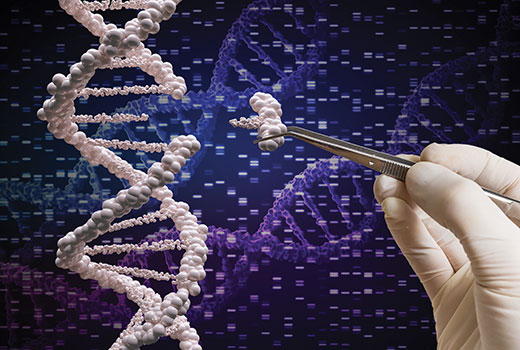Human gene-editing experiment ignites controversy
On Nov. 27, 2018, professor He Jiankui announced that a pair of genetically edited twins had been born in China. He and his team used CRISPR/Cas-9, a gene-editing tool that makes it possible to add a healthy gene or disable an unhealthy one. In this case, he says he was able to successfully deactivate CCR5, the gene through which HIV is transmitted.
The announcement was met with immediate outrage from the scientific community, as more than 120 Chinese scientists signed two letters calling his research “crazy,” adding that this use of the CRISPR tool was a “huge blow” to China’s reputation in medical research. This group asked the Chinese government to ban the practice of implanting edited embryos, and government officials have ordered an investigation into Jiankui’s claims. The response worldwide was quick and emphatic. Experts in the field said things like “rogue human experimentation,” “monstrous,” “scientific misconduct,” “morally and ethically indefensible,” “lack of transparency and disregard for risk,” and much more.
The gene editing of embryos has been banned or prohibited throughout most of the world.
Jiankui graduated from the University of Science and Technology in China, studied for his Ph.D. at Rice University, and did postgraduate research at Stanford University. While at Rice, his advisor was Michael Deem, who collaborated on three professional papers with Jiankui and was also involved in his research. Both men are physics experts, not medical doctors, and neither had any experience in conducting human trials. Deem is now under investigation by Rice.
The research project included couples where the father was HIV-positive and the mother was not. Jiankui’s stated goal was to edit the genes of in vitro-fertilized babies who were at risk of potentially contracting HIV. However, there are already in place medical treatments that can prevent the disease being passed from parents to their children. The overwhelming majority of scientists feel gene editing should be reserved for diseases that are already terminal and without viable treatment options.
Jiankui has been accused of using his experiment not primarily to prevent the babies from possibly contracting HIV, but as an opportunity to demonstrate the ability to edit genes in pre-born infants. The problem is that the risk outweighs the result. By editing the DNA of human embryos, scientists change not just the DNA of a single person but create changes in that person that can be passed on to the next generation. Ed Yong wrote in The Atlantic, “Scientists have already begun using CRISPR and other gene-editing technology to alter human cells in attempts to treat cancers, genetic disorders and more. But in these cases, the affected cells stay within a person’s body. Editing an embryo is very different: It changes every cell in the body, including the sperm or eggs that would pass to future generations.”
Eric Topol, founder of the Scripps Research Translational Institute, said that for the first time in history, Jiankui “has used this powerful tool in a reckless way for no good reason.” Timothy Henrich, a translational HIV researcher at the University of California at San Francisco, said, “I cannot find a scientific rationale to do this, other than the proof of concept that you could modify the embryo and bring it to term.”
The twins, whose names are Lulu and Nana, are at greater risk of contracting diseases like West Nile Virus and dying from the flu, because CCR5 is essential to the human immune system. Feng Zhang, one of the inventors of the CRISPR tool, said, “When you change one thing, something else gets changed, too.” Jiankui announced at the second International Summit on Human Genome Editing in Hong Kong on Nov. 28 that another couple was pregnant with a genetically modified embryo. Thirty-one IVF embryos have been created by his team, with 70 percent of them edited.
Southern Baptist bioethicist C. Ben Mitchell said, “We should not move ahead without the assurance that we could reverse any augmentation we make.”
Part of the issue with Jiankui’s project is that he has thus far offered no empirical evidence that has been subjected to peer review. The announcement of his work came on YouTube rather than through a credible scientific or medical journal. He stated that he has presented his findings to an undisclosed scientific journal.
R. Albert Mohler Jr., president of Southern Baptist Theological Seminary, has stated that “what we are talking about is the very nature of humanity — a redefinition of what it means to be human.”
While people have DNA, humans are more than biological specimens. Humans are made in the image of God. With this new announcement out of China, it seems we have entered into a brave new world. The results of this experiment will not be fully known for years, but the pressing moral questions will cry out for answers: What does it mean to be a human being, created in the image of God? Do we have the authority to change our own genetics? Are humans limited to physical characteristics, or do we have an eternal soul? The importance of ethics and morality cannot be overlooked in this discussion.
Medical and scientific researchers are at the beginning stages of learning how the human body can be used to heal the human body. Whatever may happen in the future, we can be sure David was right when he wrote Psalm 139:14: “I will give thanks to Thee, for I am fearfully and wonderfully made. Wonderful are Thy works, and my soul knows it very well.”

